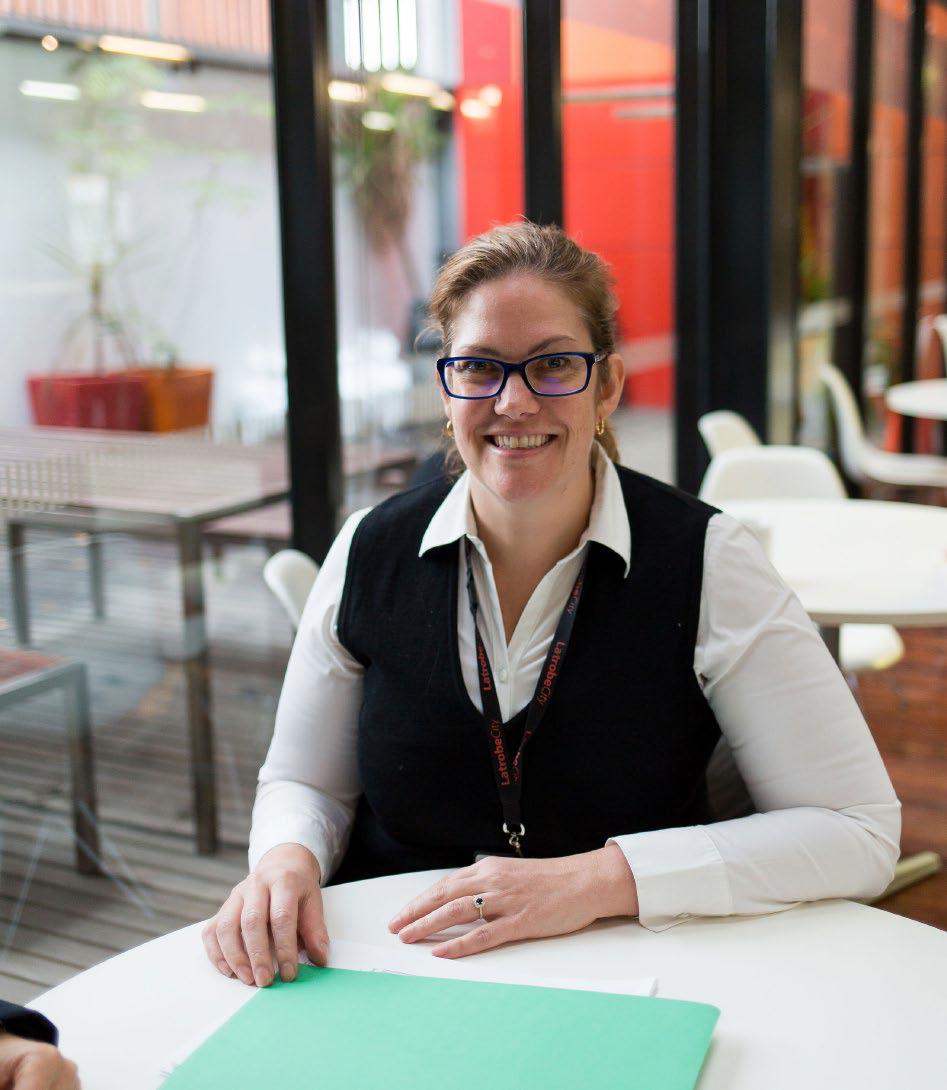
7 minute read
SUSTAINABILITY INITIATIVE
Initiatives that demonstrate excellence in the delivery of environmentally sustainable processes or projects. These provide a new way of ensuring programs, projects and developments meet present needs, without compromising future generations.
JUDGING CRITERIA
Advertisement
Clarity of the initiative’s outcomes Innovative features Size and complexity of initiative relative to funding Cost benefits Sustainability of project
WINNER
HIGH COMMENDATION
FINALIST
WINNER
SUSTAINABILITY INITIATIVE


The Bright Futures East Gippsland project began when $1.8 million in federal Community Energy Efficiency Program (CEEP) funding was secured to upgrade the four biggest energy-using facilities managed by the Council. The program how energy efficiency and renewable energy can reap the multiple benefits of: • significant emissions reductions • operational cost savings • enhanced community wellbeing • support for local jobs • improved facilities. The project demonstrated that Local Government can be a source of independent energy efficiency and solar advice, with more than 600 residents and businesses participating. A focus was communicating the benefits of energy efficiency. A communications program was developed to raise awareness of positive solutions for climate change mitigation and savings. The energy efficiency program has wiped $1.5 million from the Council’s energy bills and avoided 6628 tonnes of CO2-equivalent corporate emissions, representing a 28 per cent reduction over six years. Leading by example, the Council undertook a bulk LED streetlight switch of 2629 lights and energy efficiency and solar upgrades at indoor recreation and administration centres, East Gippsland Livestock Exchange, six libraries and eight community-managed facilities. Complementary community-focused programs also encouraged uptake of smart energy solutions. The Bright Futures Renewable Energy component resulted in three projects being piloted in 2018/19 helped deliver savings and benefits to East Gippsland residents and businesses. Results include: • The Multisite Feasibility Study: where 10 businesses received a solar feasibility report and recommendations for energy saving measures. The cost benefit ratio found that for every $1 spent, $1.76 was retained locally. • Solar Bulk Buy: this popular 2018/19 program saw 60 systems and eight batteries installed, mainly in homes. The project also supported student attendance at an Energy Breakthrough event, funded Positive Change, an energy helpline for households and paid for a promotional Renewable Energy Trailer. It also sponsored a solar bulk-buy program helping low-income families access rooftop solar. The Bright Futures Renewable Energy component resulted in three projects in 2018/19 with the objective of helping deliver savings and benefits to residents and businesses. Bright Futures is an innovative, smart energy program that aims to lead by example. To date it has seen $1.5 million wiped from East Gippsland Shire Council energy bills. The objectives of Bright Futures East Gippsland include to: • Implement a rolling program of energy efficiency and renewable energy projects to reduce emissions and reap ongoing cost savings • Communicate the benefits to demystify the complexity of energy efficiency and solar projects and facilitate positive solutions. A key outcome has been communicating positive solutions for a strong climate future. It has also presented opportunities for delivering long-term renewable energy solutions for the region and priority options for the Council.

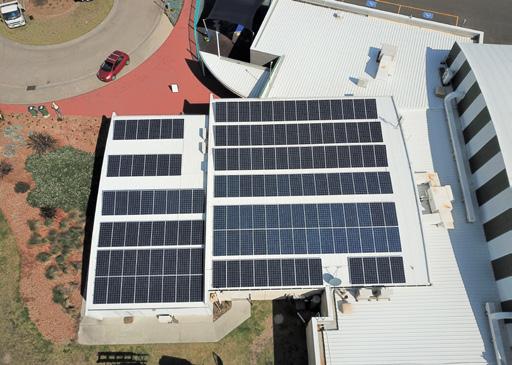
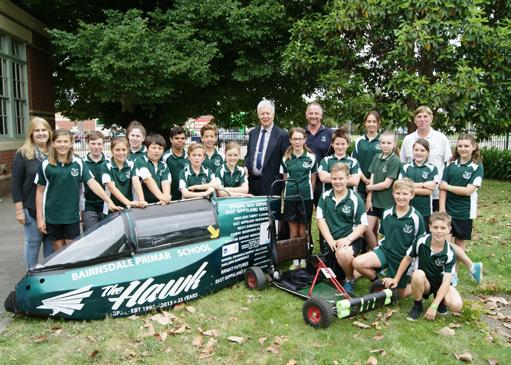


HIGH COMMENDATION
SUSTAINABILITY INITIATIVE
Bayside City Council is the first in the south east of Melbourne to achieve certified carbon neutrality, joining a small group of Councils nationwide. Bayside’s Journey to Carbon Neutrality began with a commitment made in 2008. In 2018, the Carbon Neutrality Action Plan was adopted to set the direction and specified actions for Council to achieve its commitment. Six strategic objectives were set in this Action Plan aligned to measurable targets. Since 2008, works have been continuously undertaken to upgrade streetlights and buildings to improve energy efficiency, and to install renewable energy sources. In 2019, Bayside declared a ‘Climate Emergency’ and in 2020, the Council also signed a power purchase agreement to supply renewable electricity to all its large buildings and public lighting. Overall, five of the six strategic objectives in Carbon Neutrality Action Plan were met, and the ‘Carbon Neutrality’ target achieved in September last year. The Council received certification for ‘Carbon Neutrality’ under the Climate Active Carbon Neutral Standard in December 2020. By taking actions to avoid and reduce greenhouse gas emissions and lead the way for the community, that goal was reached last September. Achieving the target required considered planning and decision-making across services, including energy efficiency improvements to infrastructure, installing solar power and changes to procurement, fleet management and policies. An “Avoid, Reduce, Switch and Offset” approach was implemented to: 1. Avoid greenhouse gas emissions, by enabling Council staff to change behaviour and contribute to the achievement of Council's carbon neutrality goal 2. Reduce greenhouse gas emissions from Council buildings and assets, by 30 per cent compared to 2012/13 3. Increase the amount of energy from renewable sources for operations, by 30 per cent compared to 2012/13 4. Reduce the greenhouse gas emissions intensity from Council's fleet and staff travel, by 30 per cent compared to 2012/13 5. Reduce Council's total organisational greenhouse gas emissions, by 5 per cent each year 6. Measure and report on greenhouse gas emissions, with independent verification. Emissions were reduced by avoiding fossil fuels, improving energy efficiency, increasing renewable energy and supporting staff. Key achievements include: • Residential street lighting upgrade reduced greenhouse gas emissions from that source by almost half • A 10-year renewable energy Power Purchase Agreement, to supply Council’s large sites and street lighting, approximately three-quarters of Council’s electricity use. • 1,316 solar panels installed at 31 Council buildings. • Council replaced all commuter vehicles with 22 hybrid and four electric models. The Executive team and Councillors were engaged in major decisions, including participation in the Power Purchase Agreement for renewable energy, and the budget required for the purchase of carbon offsets.

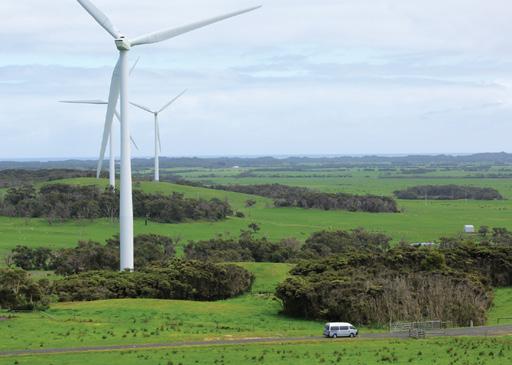
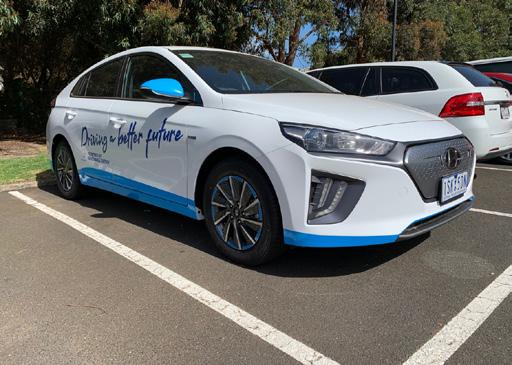
FINALIST
SUSTAINABILITY INITIATIVE


The Sunshine Leisure Centre’s Sustainable Future Project was designed to evaluate, investigate, implement and review strategies for reducing energy expenditure, reduce costs, cut carbon emissions and contribute to the community’s collective goal of a sustainable future. While mainly aimed at carbon footprint reduction and the Leisure Centre's impact on the environment, the project also had financial savings in mind. By reducing energy consumption, the changes not only generated a more efficient facility but saved the Council over $200,000 in operating expenses. Those savings fund other Council services in a rate-capped environment. The operation’s efficiency gains also support long term goals and fund other environmental initiatives which help compound the project’s benefits. The centre was the first in Victoria to install latest technology OC-1 filtration media and among the earliest to integrate a cogeneration unit with a 99kw solar system. The project solidified and implemented number of new concepts, some which were firsts in Victoria. Some projects had zero capital expense and were easily achieved. These included modifying the Centre's automated lighting schedule to reduce hours, modifying practices such as adding timers to pumps, TVs and other electrical equipment, which reduced their hours of use. This simple task produced easy savings. Similar results were achieved by a reverse osmosis system, cogeneration plant, carpark solar farm and electric vehicle, LED replacement program, motorised pool blankets, rainwater harvesting, cafe waste reduction, upgrading the Building Management System and using up-cycled building materials for the outdoor cafe.
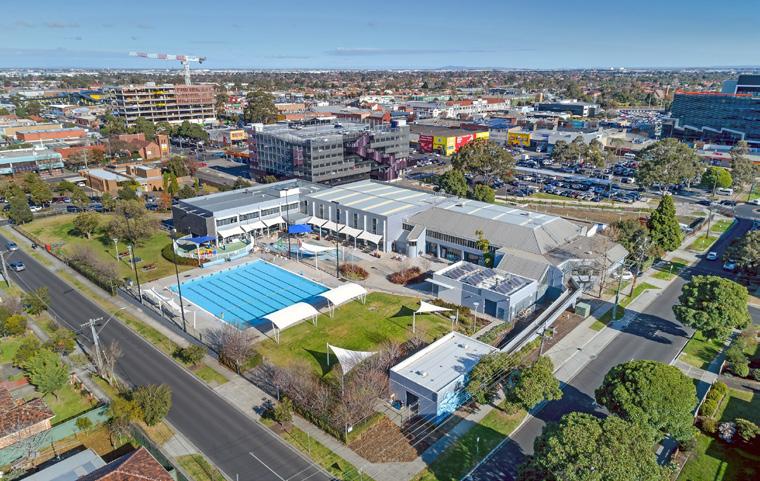
Latrobe City Council is proud to be formally recognised as an Employer of Choice in The Australian Business Awards amongst such high calibre candidates.
Latrobe City was the only council to receive this honour in the awards.
The title is bestowed upon organisations that demonstrate effective employee recruitment, engagement and retention. To be recognised as an Employer of Choice, Council achieved across the areas of: • Organisational Culture and Leadership; • Employee Education,Training and
Development; • Employee Health, Safety and Satisfaction; • Performance Management; and • Recognition and Remuneration.
Latrobe City Council provides employment to over 1000 individuals
rewarding employment experience within the local government sector.
